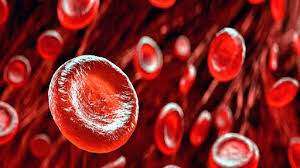Ayurvedic Blood Purification

In Ayurveda, blood purification is considered an essential aspect of maintaining overall health and preventing various diseases. The process of blood purification in Ayurveda is often referred to as “Rakta Shodhana.” The primary goal is to eliminate impurities or toxins from the blood, balance doshas (Vata, Pitta, and Kapha), and promote optimal functioning of the circulatory system. Several Ayurvedic therapies, herbs, and dietary practices contribute to blood purification. Here’s a detailed overview:
Ayurvedic Approaches to Blood Purification:
1. Panchakarma:
– Panchakarma is a comprehensive Ayurvedic detoxification and purification therapy. It includes five main procedures:
– Vamana (Therapeutic Emesis): Induced vomiting to eliminate excess Kapha.
– Virechana (Therapeutic Purgation): Use of herbal laxatives to cleanse the digestive tract and eliminate Pitta-related toxins.
– Basti (Enema Therapy): Introduction of medicated substances into the rectum to cleanse and balance Vata.
– Nasya (Nasal Administration): Application of herbal oils or powders through the nasal passages to clear toxins and balance doshas.
– Raktamokshana (Bloodletting): A specialized procedure for direct blood purification, rarely used and performed by skilled practitioners.
2. Herbs for Blood Purification:
– Various Ayurvedic herbs are believed to have blood-purifying properties. Some commonly used herbs include:
– Neem (Azadirachta indica): Known for its antibacterial and antiviral properties.
– Manjistha (Rubia cordifolia): Believed to cleanse the blood and support skin health.
– Turmeric (Curcuma longa): Has anti-inflammatory and antioxidant properties.
– Guduchi (Tinospora cordifolia): Supports immune function and detoxification.
– Triphala: A combination of three fruits (Amla, Haritaki, Bibhitaki) known for its detoxifying effects.
3. Dietary Recommendations:
– Ayurveda emphasizes a balanced and sattvic (pure) diet for blood purification. This includes fresh fruits, vegetables, whole grains, and easily digestible foods.
– Drinking warm water with lemon in the morning is often recommended for its cleansing effect.
4. Ayurvedic Blood Purification Formulations:
– Ayurvedic practitioners may prescribe specific formulations known as “Raktashodhaka” or blood-cleansing formulas. These formulations often contain a combination of herbs with blood-purifying properties.
General Blood Purification Guidelines:
1. Seasonal Cleansing:
– Ayurveda advocates seasonal cleansing to rid the body of accumulated toxins. The transition between seasons is considered an ideal time for detoxification.
2. Hydration:
– Staying well-hydrated is crucial for blood purification. Drinking warm water throughout the day is recommended.
3. Avoiding Processed Foods:
– Processed and refined foods are believed to contribute to toxin buildup. Ayurveda encourages the consumption of whole, natural foods.
4. Regular Exercise:
– Gentle, regular exercise is recommended to stimulate circulation and support the elimination of toxins.
5. Proper Sleep:
– Adequate and restful sleep is considered essential for overall well-being, including blood purification.
6. Stress Management:
– Chronic stress can contribute to toxin buildup. Ayurveda emphasizes stress management through practices like meditation, yoga, and pranayama.
Considerations and Precautions:
1. Individualized Approach:
– Ayurvedic blood purification practices are highly individualized based on one’s constitution (Prakriti), imbalances (Vikriti), and specific health conditions.
2. Consultation with an Ayurvedic Practitioner:
– It is advisable to consult with a qualified Ayurvedic practitioner before undergoing any blood purification therapies. They can assess your individual needs and recommend personalized approaches.
3. Skilled Practitioners:
– Specialized Panchakarma therapies, including bloodletting (Raktamokshana), should only be performed by skilled and experienced Ayurvedic practitioners.
4. Contraindications:
– Some blood purification practices may not be suitable for individuals with certain health conditions. Pregnant women and those with chronic diseases should exercise caution and seek guidance.
Ayurvedic blood purification is a holistic approach that considers the interconnectedness of the body, mind, and spirit. Individualized recommendations, lifestyle modifications, and herbal support aim to enhance overall health and balance in the body, contributing to the purification of the blood and prevention of diseases.
